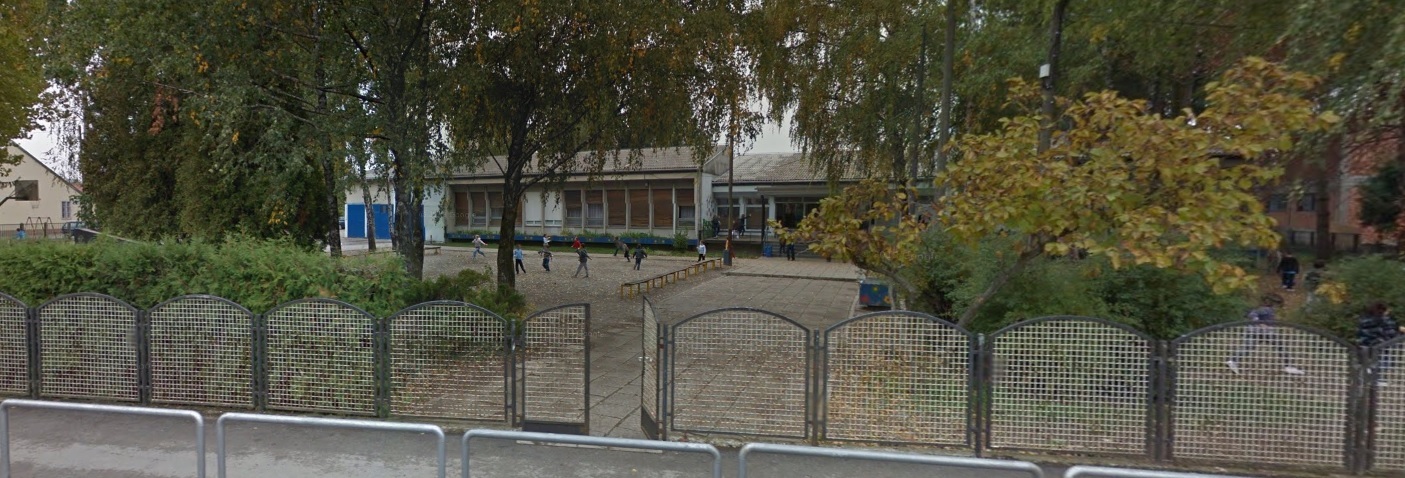 The Odra Elementary School, which was established in 1859, is a small school in the city of Zagreb with about 300 students in 16 classes, and 40 employees. The school is carrying out regular teaching work as well as various extracurricular activities, such as sports, music, and theatre. Each teacher is responsible for developing and managing at least one project per year. Children with disabilities actively participate in all school activities. The school premises are currently under renovation so as to improve working conditions. The school also has an expert evaluation team and takes part in a research conducted annually by the Croatian National Centre for External Evaluation of Education.
The Odra Elementary School, which was established in 1859, is a small school in the city of Zagreb with about 300 students in 16 classes, and 40 employees. The school is carrying out regular teaching work as well as various extracurricular activities, such as sports, music, and theatre. Each teacher is responsible for developing and managing at least one project per year. Children with disabilities actively participate in all school activities. The school premises are currently under renovation so as to improve working conditions. The school also has an expert evaluation team and takes part in a research conducted annually by the Croatian National Centre for External Evaluation of Education.

Former successfully carried out activities show that our staff possesses necessary knowledge and skills for the execution of this project as well as that they are prepared for team work and for using educational strategies and methods of teaching both in regular classes and extracurricular activities. We will mention several activities we carried out and which subject matter is connected to the subject matter of this project:
- a) class projects which ran throughout the school year „Games of our grandparents“
researching traditional games and integrating them in the school process, teacher M. Dianežević; „My home, Turopolje“ – through investigative learning the students become acquainted with the part of the country they live in: toys, clothes, objects, flora and fauna of Turopolje for the purpose of organising learning outside the classroom at Andautonia archaeological site as well as at the Turopolje Museum, teacher B. Petračić; „From old treasure chests“ – become acquainted with the artistic styles of Croatian cultural heritage, Croatian national embroidery, customs, tools, ways of living, objects for the purpose of gathering and presenting ethno collection, teacher J. Pavliša Zupanek; „Making and repairing discarded wooden objects“ – developing the students‘ entrepreneurial spirit and independence in creating products, developing appreciation of beauty, teacher L. Pocrnić; „Little school of Glagolitic script“ – promote glagolitic literacy of preschool children, elementary school children and of general population, as well as connecting with the Museum of History, teachers I. Kujundžić, T. Horvat; „Traditional dances, songs and musical instruments of Turopolje“ – introduce the students to the Turopolje folk tradition and present it, teacher S. Dorušić). The projects show how our students and teachers are prepared for investigative learning and cooperation with a local community. With these projects we encourage development of students‘ and teachers‘ self-evaluation skills for they are actively participating in planning, execution and evaluation of the projects.
- b) School project which ran throughout the school year – AntroPOP Project:
anthropological science popularisation programme conducted by the Institute for Anthropological Research and the Archaeological Museum in Zagreb and with the support of the Ministry of Science, Education and Sports of the Republic of Croatia. In the Odra Elementary School, the students from the age of 11 to the age of 14 participate in the programme. The programme’s objectives: popularise the anthropological science and its subdisciplines (archaeological, socio-cultural, linguistic, biological anthropology, and anthropometry), cooperation between scientific-research institutions and educational institutions in order to encourage the students‘ interest for the scientific-research approach to getting to know themselves and their surroundings. The students are active explorers who conduct and present their researches. They apply learned information and skills of numerous school subjects and learn how to achieve human rights, as well as intercultural, ecological and social dimensions of civic competence. Encourage better relationship to their home region through active research (biometric measurements of people, studying traditional foods, customs of the Jurjevo holiday, traditional clothes). The programme demonstrates the connection that the students and the teachers have to scientific and cultural institutions as well as the school’s openness for collaboration.
- c) Project days
– Open Door Days (the presentation of projects in which participate all school employees for the purpose of connecting the school, the parents, and the local community) – each class presented their projects, while the students, the parents, and the local population visited whole-day presentations. By organising this kind of programme, the students, teachers and research assistants demonstrate organisational skills and problem solving competence, and the local community its interest for participation in the school’s activities.
– World Water Day (workshops: making a model of a well, measuring water consumption both at school and at home for one week; conducting a survey on students‘ and parents‘ environmental habits; learning outside the classroom at Mala Mlaka well: visiting the museum and the well; regular classes: a lecture with the purpose of encouraging the students and parents to adopt environmental habits)
- d) The school’s web page – the students, teachers, research assistants (the school librarian and the school pedagogue), and subcontractors form programmes which demonstrate the dynamics and heterogeneousness of the school’s activities as well as the usage of Web 2.0 tools.
- e) „Krijes“ school magazine – the students and the teachers participate in forming the content; it connects all areas of education.